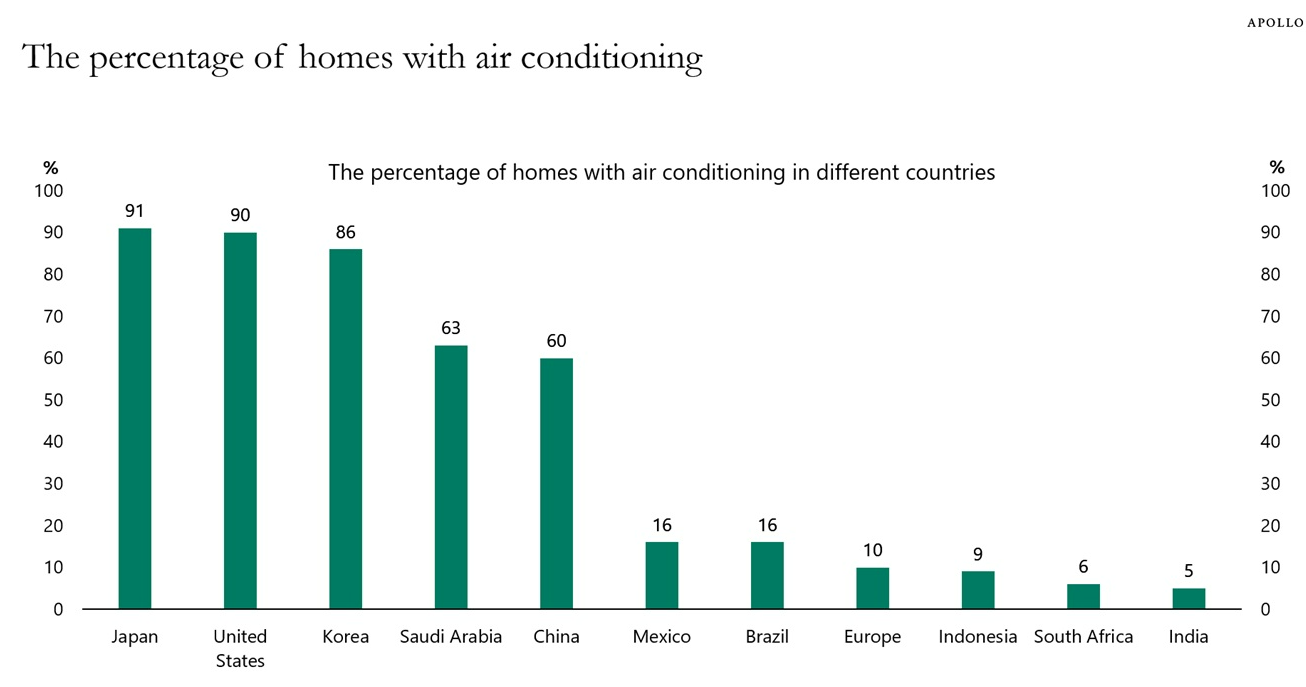Mario Draghi, the previous Jerome Powell of the European Union, was tasked with writing an in depth report on the financial competitiveness (or lack thereof) in Europe.
His findings are placing.
Listed below are some info and figures that stood out:
Throughout completely different metrics, a large hole in GDP has opened up between the EU and the US, pushed primarily by a extra pronounced slowdown in productiveness development in Europe. Europe’s households have paid the worth in foregone residing requirements. On a per capita foundation, actual disposable earnings has grown nearly twice as a lot within the US as within the EU since 2000.
Europe is caught in a static industrial construction with few new firms rising as much as disrupt present industries or develop new development engines. In truth, there isn’t any EU firm with a market capitalisation over EUR 100 billion that has been arrange from scratch within the final fifty years, whereas all six US firms with a valuation above EUR 1 trillion have been created on this interval.
The EU is getting into the primary interval in its current historical past by which development is not going to be supported by rising populations. By 2040, the workforce is projected to shrink by near 2 million employees annually.
EU firms nonetheless face electrical energy costs which can be 2-3 occasions these within the US. Pure gasoline costs paid are 4-5 occasions increased.
Draghi presents some options for closing the competitiveness hole by decreasing obstacles to innovation, growing funding in sure areas and establishing an training curriculum that facilitates technological breakthroughs.
Right here’s one resolution Draghi didn’t supply — extra air-con.
The world is getting hotter.
Europe is the fastest-warming continent, with common temperatures rising at double the worldwide common.
Take a look at this chart from Torsten Slok:
I knew AC wasn’t an enormous deal in Europe however by no means realized solely 10% of houses had it.
You may snigger at this suggestion, however there may be proof that exhibits air-con is among the most vital innovations of the previous 100 years.
Singapore’s founding father, Lew Kuan Yew, credited air-con as one of many important drivers that turned a small island nation with few pure assets into one of the vital affluent international locations on the earth:
Air con was a most vital invention for us, maybe one of many sign innovations of historical past. It modified the character of civilization by making growth attainable within the tropics.
With out air-con you may work solely within the cool early-morning hours or at nightfall. The very first thing I did upon turning into prime minister was to put in air conditioners in buildings the place the civil service labored. This was key to public effectivity.
When air-con first grew to become widespread in the USA within the Fifties and Sixties, a research discovered that federal workers noticed their productiveness rise 24% after they moved to an workplace with AC.
Steven Johnson wrote a whole chapter in his ebook, How We Obtained to Now, about how the arrival of chilly — ice, refrigeration and AC — modified the course of historical past.
There’s a purpose lots of the world’s largest cities – London, Paris, New York, Tokyo — have been created in average climates. However now the expansion is occurring in hotter areas. Johnson explains:
The quickest rising megacities are predominantly in tropical local weather: Chennai, Bangkok, Manila, Jakarta, Karachi, Lagos, Dubai, Rio de Janeiro.
The flexibility to manage temperature and humidity in workplace buildings, shops, and wealthier houses allowed these city facilities to draw an financial base that has catapulted them to megacity standing.
What we’re seeing is arguably the most important mass migration in human historical past, and the primary to be triggered by a house equipment.
Air con modified voter patterns in the USA by permitting extra folks emigrate south. Within the coming years, it’s going to seemingly save lives as sure areas of the planet get hotter and warmer.
I can’t think about life with out AC and am uncertain how folks managed within the pre-AC period.
The AC unit in my workplace constructing invariably goes out for a few weeks each summer time. It makes my workplace dreadfully uncomfortable to work in.
If temperatures proceed to rise, air-con will seemingly be one of the vital vital home equipment within the twenty first century too.
Michael and I spoke about air-con and way more on this week’s Animal Spirits video:
Subscribe to The Compound so that you by no means miss an episode.
Additional Studying:
The Air Conditioning Impact
Now right here’s what I’ve been studying these days:
Books:



